Made Stress-Free Reliable Hassle-Free Convenient Pocket friendly
Request a call back
The surgery you need is
just a click away


21K +
Consultations

1180
Surgeries

100+
Partner Hospitals

10000+
Hassle-free Consultation

5000+
Smooth surgeries

500+
Expert Doctors

100+
Trusted hospitals

What is Kidney Transplant?
Want to go through Kidney Transplant surgery and have a healthy life at an affordable price with the best doctors in Pune? Get all kinds of bariatric-related consultations for your surgery. Here at Aapkacare Health, we will provide the best surgeons.
Welcome to Aapkacare’s comprehensive guide on kidney replacement. In this article, we’ll cover all aspects of kidney replacement, including treatment options, signs indicating the need for surgery, the surgical procedures involved, and the benefits of undergoing this life-changing treatment.
|
SURGERY NAME
|
KIDNEY TRANSPLANT
|
|
ALTERNATIVE NAME
|
RENAL TRANSPLANTATION
|
|
DISEASE TREATED
|
END-RENAL DISEASE, URINARY TRACT OBSTRUCTION, LUPUS, REPEATED URINARY INFECTION, POLYCYSTIC KIDNEY DISEASE
|
|
BENEFITS OF THE SURGERY
|
INCREASES LIFE EXPACTANCY OR SURVIVAL RATE, IMPROVES THE QUALITY OF LIFE, COST-EFFECTIVE, ALLOW TO RESUME DAILLY ACTIVITIES
|
|
TREATED BY
|
NEPHROLOGIST
|

Overview
Identifying the signs of Kidney Transplant
Persistent Fatigue
Feeling excessively tired despite adequate rest.
Swelling
Noticeable swelling in the ankles, feet, or around the eyes.
High Blood Pressure
Uncontrolled high blood pressure that is difficult to manage.
Decreased Urine Output
A significant decrease in the amount of urine produced.
Changes in Urine
Changes in the color, odor, or frequency of urination.
Shortness of Breath
Difficulty breathing, especially during physical activity.
Causes of Kidney problems that can lead to replacement
Kidney replacement, often referred to as kidney transplantation, is a medical procedure performed to replace a non-functioning or failed kidney with a healthy kidney from a living or deceased donor. The primary cause of kidney replacement is end-stage renal disease (ESRD), in which the kidneys have lost most or all of their normal function. Several common causes of ESRD can lead to the need for kidney replacement:

Chronic Kidney Disease (CKD)
The most common cause of ESRD is the progression of chronic kidney disease. CKD can result from various underlying conditions, including diabetes, high blood pressure (hypertension), glomerulonephritis, polycystic kidney disease, and other kidney-related disorders.
Diabetes
Diabetes is a leading cause of kidney disease, particularly in cases of type 1 and type 2 diabetes

Hypertension (High Blood Pressure)
Uncontrolled high blood pressure over an extended period can cause damage to the blood vessels in the kidneys.

Glomerulonephritis
Glomerulonephritis is a group of diseases that cause inflammation and damage to the tiny kidney filtering units of the glomeruli.

Polycystic Kidney Disease (PKD)
PKD is a genetic disorder in which cysts form within the kidneys

Infections and Inflammation
Severe and recurrent kidney infections or autoimmune conditions affecting the kidneys can lead to kidney damage and ESRD.
- Living donor: The patient receives the kidney from a living donor. The living donor may be parents, relatives, neighbours or friends.
- Deceased donor: The patient receives the kidney from a deceased person who himself or his immediate relative chooses to donate kidneys after his death.
- Swap exchange (paired exchange): In this type of kidney transplant, if the donor’s kidney is incompatible with the recipient, he may exchange the kidney with another pair of donors and the recipient. There is a simultaneous kidney transplant in two recipients
- ABO incompatibility: Earlier, in the absence of advanced techniques, if the blood type of donor and recipient were incompatible, there was a rejection of the kidney by the immune system. However, with the availability of new techniques, a blood-type incompatible kidney transplant is possible. The patient has to undergo treatment before and after the kidney transplant surgery to reduce the risk of rejection. The doctor may inject immunoglobulins to reduce the risk of infection, perform plasmapheresis to eliminate antibodies and administer advanced medicines to reduce rejection risk.
The kidneys are one of the most important organs of the human body. They are bean-shaped, reddish-brown paired organs in the renal system that are normally located high in the abdominal cavity and against its back wall, lying on each side of the vertebral column and surrounded by adipose tissue. The right kidney is usually slightly inferior compared to the left kidney, probably because of its relationship to the liver.
The kidneys are highly complex organs with many parts. The main parts of the kidney are:
Kidney capsule (renal capsule): It is made of three layers of connective tissue or fat that protect the kidney from injury, increase its stability and connect the kidneys to surrounding tissues.
- Renal Artery: it is a large blood vessel that controls blood flow into the kidney
- Renal cortex: It is the kidney’s outer layer, where the nephrons (blood-filtering units) begin.
- Renal medulla: The inner part of the kidney contains most of the nephrons.
- Renal papillae: These are pyramid-shaped structures that transfer urine to the ureters.
- Renal pelvis: These are funnel-shaped structures that collect urine and pass it down to the ureters.
- Renal vein: It is the main blood vessel that carries filtered blood out of the kidneys.
The kidney performs some of the vital functions of the body, including:
- Maintaining the overall body fluid balance
- Regulating and filtering the minerals from the blood
- Filtering the waste products from food, medications and toxic substances
- Creating hormones that help produce red blood cells, promote bone health, and regulate blood pressure
The doctor also evaluates whether the patient is eligible for a kidney transplant. Several conditions are treated by kidney transplants. Some of them are:
- Kidney damage due to persistent high blood sugar levels (diabetes) or uncontrolled high blood pressure
- Glomerulonephritis is characterised by inflammation of the filtering unit of the kidneys
- Haemolytic uremic syndrome
- Urinary tract obstructions
- Interstitial nephritis causes inflammation in the kidney tubules
- Poisoning due to heavy metals, such as cadmium, mercury, cobalt, and arsenic
- Excessive consumption of medicines, such as aspirin, ibuprofen, and naproxen
- Lupus and other types of immune diseases
- Repeated urinary infection
- Polycystic kidney disease
A kidney transplant is not for everyone. Patients with advanced age, recently treated or active cancer, drug and alcohol abuse, and several cardiovascular diseases are generally not eligible for a kidney transplant. In general, a candidate should have the following to be a kidney transplant recipient.
- End-stage renal failure and on dialysis.
- Late-stage chronic kidney disease, approaching the need for dialysis.
- A life expectancy of at least five years.
- A full understanding of postoperative instructions and care.
Kidney transplantation involves placing a healthy kidney into the body where it can perform all the functions that a failed kidney cannot perform. The new kidney is placed on the lower right or left side of the abdomen where it’s surgically connected to the nearby blood vessels. The whole procedure takes about 3 to 5 hours to complete and is performed under general anaesthesia by a specialised team of anaesthetists, transplant surgeons (nephrologists), and other medical staff. The procedure of kidney transplant surgery is done in the following ways.
- The paramedical staff monitors heart rate, blood pressure, and blood oxygen level throughout the surgical procedure of both the donor and recipient.
- The procedure starts with the surgery of the donor.
- The donor’s kidney is removed, and then surgery for the recipient starts.
- After administering the anaesthesia to the recipient, a minute cut is made in the pelvis area. The cut is made just above the waistline on the side where the kidney is to be transplanted.
- The original kidney is not removed in most cases. It is removed only if the original kidney is causing pain or any issue in blood circulation.
- The donor’s kidney is placed in the lower abdomen.
- Blood vessels are attached, and the ureter is also connected to the newly transplanted kidney.
- The newly transplanted kidney is sewn in its place. The transplanted kidney starts forming urine and blood filtering within minutes after being attached.
- The surgeon places a stent in the ureter to help in urinating. It is removed after 6-12 weeks.
- Then the cuts are closed using stitches, special glue or stapled.
- After this, it is dressed using a sterile surgical bandage.
- The patient will then be shifted to a recovery room to monitor vitals and post-operative recovery.
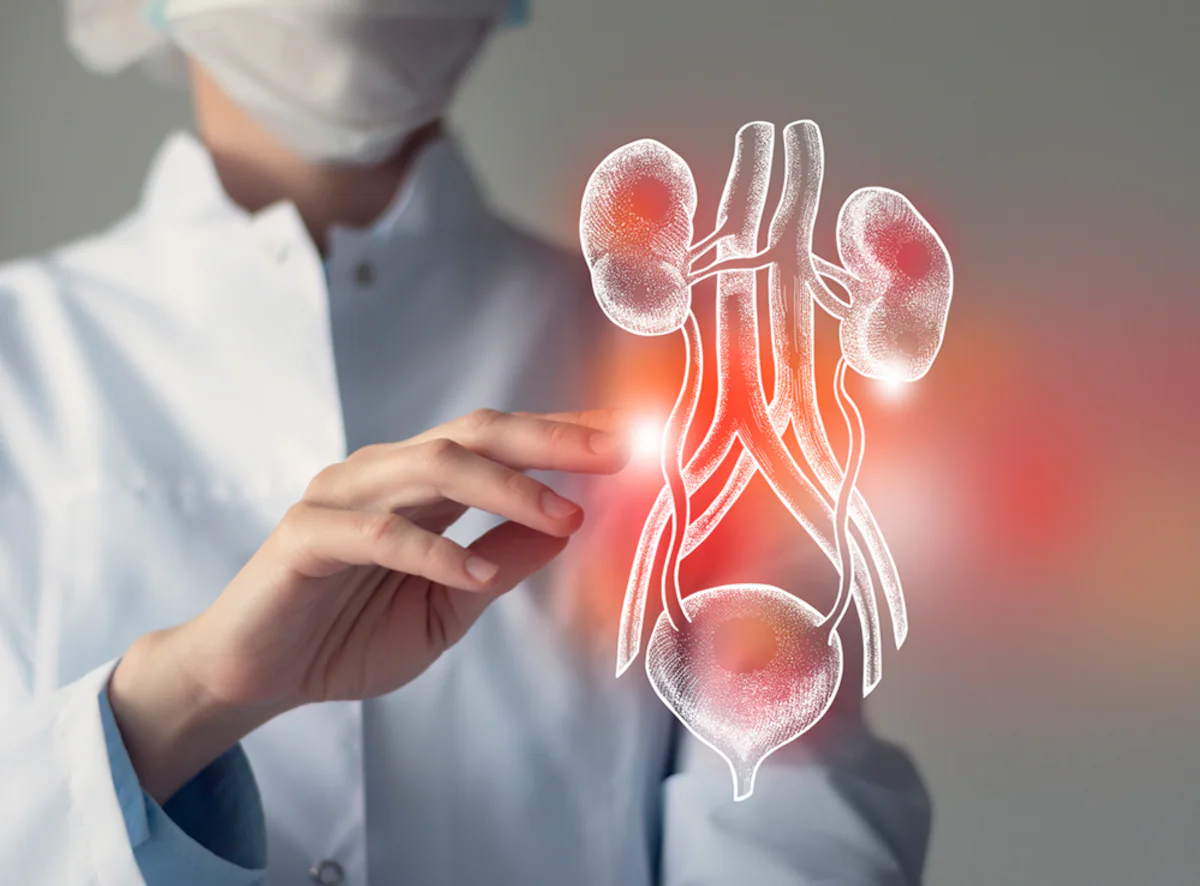

What to expect before and on the day of Kidney Transplant surgery?
The donor needs to register himself/herself for donating his/her organs. The donor may choose to donate organs, such as eyes, kidneys, or liver, before or after his/her death.
Before the Kidney Transplant
Before the surgery, the patient is evaluated by a transplant centre team. Tests are done to ensure that the patient is healthy enough to undergo transplant surgery. The following tests are done before surgery:
- A blood test is done to rule out the presence of any infection.
- Blood typing and tissue typing ensure that the body will not reject the transplanted kidney.
- Heart tests like echocardiogram, cardiac catheterisation, and EKG are also done.
- Tests are also performed to determine the presence of any cancer.
- Doctors may advise the patient to stop smoking and drinking until he/she waits for transplantation to prevent delayed healing and improve outcomes after transplant surgery.
On the day of the Kidney Transplant
- The patient should leave all valuable items at home.
- The patient needs to reach the transplant centre before the scheduled time.
- The patient will be asked to sign the consent form in the presence of his/her family.
- After reaching the transplant centre, the staff will ask the patient to change and wear a gown provided by the centre.
- Before the procedure, the staff will ask the name and treatment type the patient undergoes. It is done to avoid mismatch and confusion in the transplantation.
- The patient’s blood pressure, breathing rate, and heart rate are also monitored before starting the procedure.
- The patient will then be shifted to the operation theatre.
What to expect after the Kidney Transplant?
Immediately after the implantation is completed, the patient is shifted to the recovery room.
The recovery process at the hospital
- The hospital staff will continuously monitor the vital parameters of the patient.
- The patient must stay at the hospital for about a week as the surgeon needs a close follow-up.
- The patient will also be advised for regular blood tests for several months.
- During the hospital stay, doctors and nurses will monitor the parameters to check for any signs of complication due to transplantation.
- If there is some pain and soreness around the site of the incision. The patient may receive doses of immunosuppressants during the stay at the hospital, along with other medications, such as painkillers and antibiotics.
Recovery process/expectation after hospital discharge
- The patient should follow all the instructions provided by the doctor/surgeon throughout his/her life.
- The medications prescribed by the doctor should be administered as per the instructions provided.
- The patient should avoid lifting heavy objects and strenuous physical work.
- The patient should avoid driving for at least six weeks following surgery.
- The patient should do regular exercises and should stay active.
- The patient must avoid contact sports since they might cause injury to the transplanted kidney.
- The doctor will also provide some tips regarding the dietary habits that the patient should follow. Some tips are as follows:
Drink enough fluids.
Don’t eat raw or uncooked food
Get plenty of proteins in the diet
Avoid certain vitamins and herbal supplements
However, the average life expectancy after a kidney transplant from a living donor is about 20 to 25 years and from a deceased donor is 15 to 20 years. Several other factors also affect life expectancy after a kidney transplant. These factors are:
- Underlying medical conditions,
- Care after surgery, and
- The age of both the donor and recipient.
- he hospital staff will continuously monitor the vital parameters of the patient.
First follow-up appointments
There is a need for regular follow-up appointments with the doctor for one to two months after the transplantation. After the transplantation, the patient receives several medicines like painkillers, antibiotics, and immuno-suppressants. The recovery period after transplantation is about six months. There are regular blood tests and X-rays done for the first few years. Immunosuppressive therapy is continued for the rest of life to minimise the chances of organ rejection.

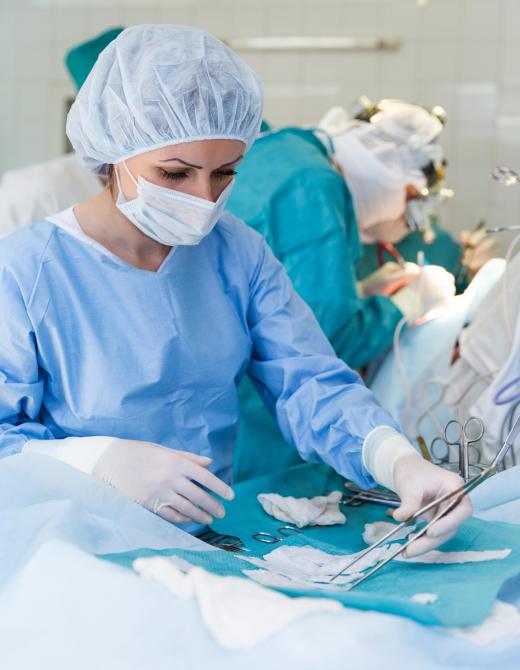
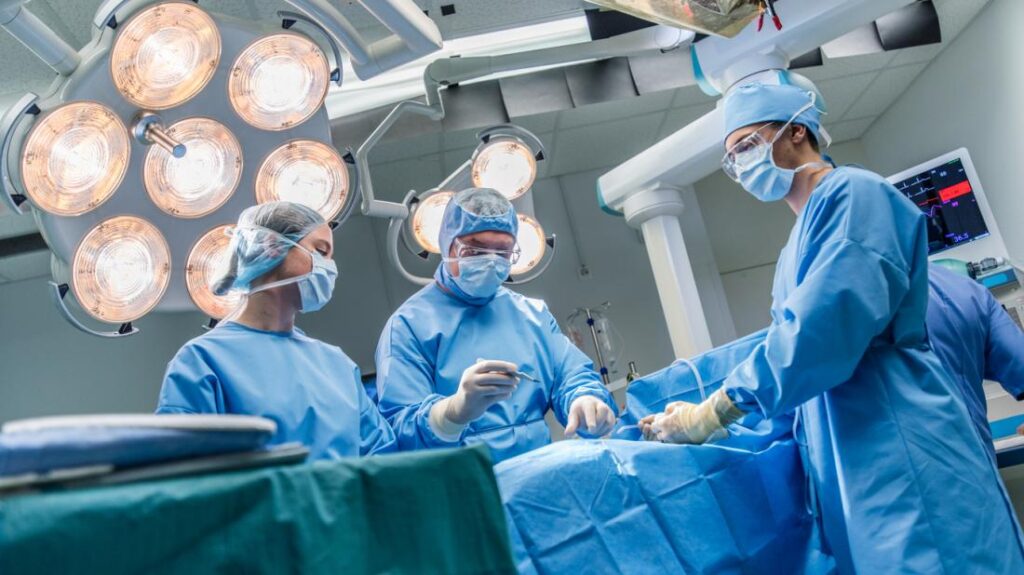
Benefits of Kidney Transplant
A kidney transplant is generally the best treatment for kidney failure in a patient who fits the transplantation procedure. A successful kidney transplant procedure provides several benefits such as:
- Increases life expectancy or survival rate
- Improves the quality of life
- Cost-effective when compared to multiple dialyses
- Higher energy levels
- Fewer restrictions on what an individual can eat and drink
- Helps improve sex life and fertility
- Allows to resume daily activities
Risks and complication of Kidney Transplant
A kidney transplant is a major and complex procedure that can cause problems for some patients. The main risks and complications of kidney transplant include:
- an allergic reaction to general anaesthesia
- bleeding
- blood clots
- leakage from the ureter
- a blockage of the ureter
- an infection
- rejection of the donated kidney
- failure of the donated kidney
- a heart attack
- a stroke
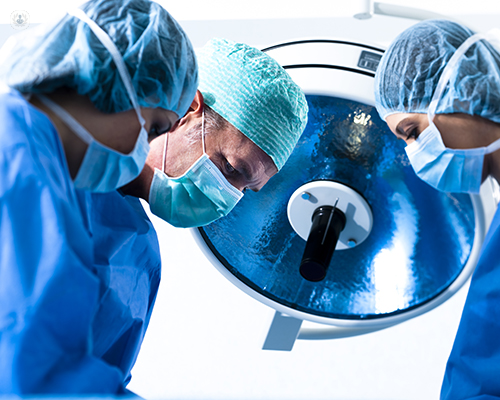
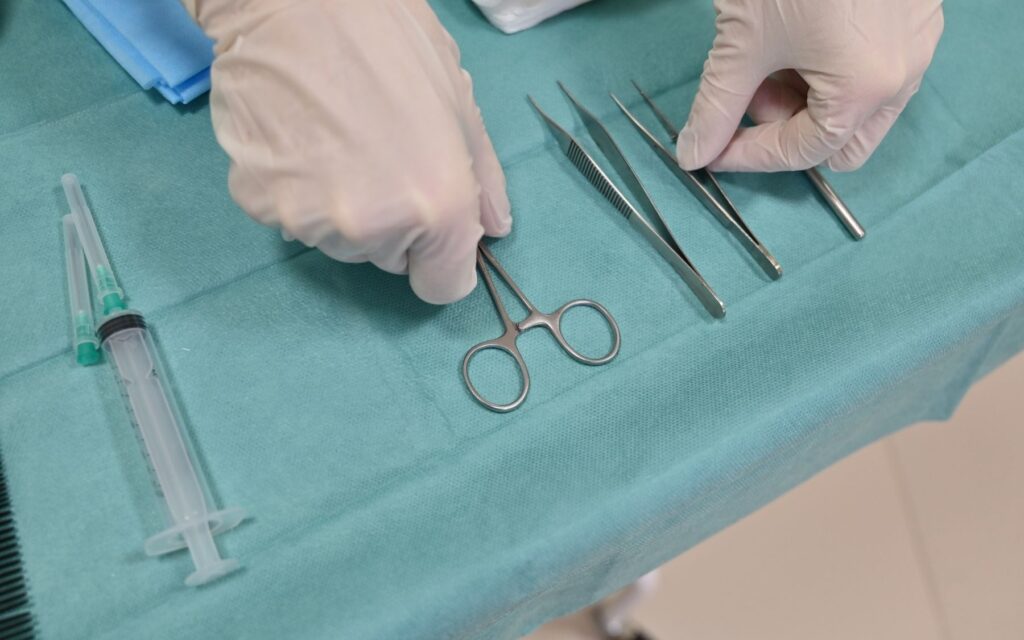
When is consultation with the doctor needed?
The patient can visit the doctor if he/she is facing any kind of discomfort, such as:
- Pain in the abdominal area
- Inflammation or swelling
- Infection in the incision area
- Bleeding
Risks of delayed Kidney Transplant
If a patient suffering from an end-stage renal disease delays a kidney transplant, it can cause life-threatening complications. The common risks of delayed kidney transplant are:
- Anaemia
- Bone weakness
- Fluid retention
- Heart disease
- Hyperkalemia
- Urinary tract obstruction
- Blood toxicity
- Uncontrolled systemic disease (heart or liver disease)
- Multiple organ failure
- Death

Cost of Kidney Transplant
The cost of a kidney transplant ranges from ₹4,00,000 to ₹10,00,000. The cost of the surgery varies based on the following factors:
- Age of the patient
- The type of procedure done
- Relationship to the kidney donor
- The medical condition of the patient
- Post-surgical complications that are involved
- The type of hospital facility availed – individual room or shared.
Your journey with Aapka Care Health

